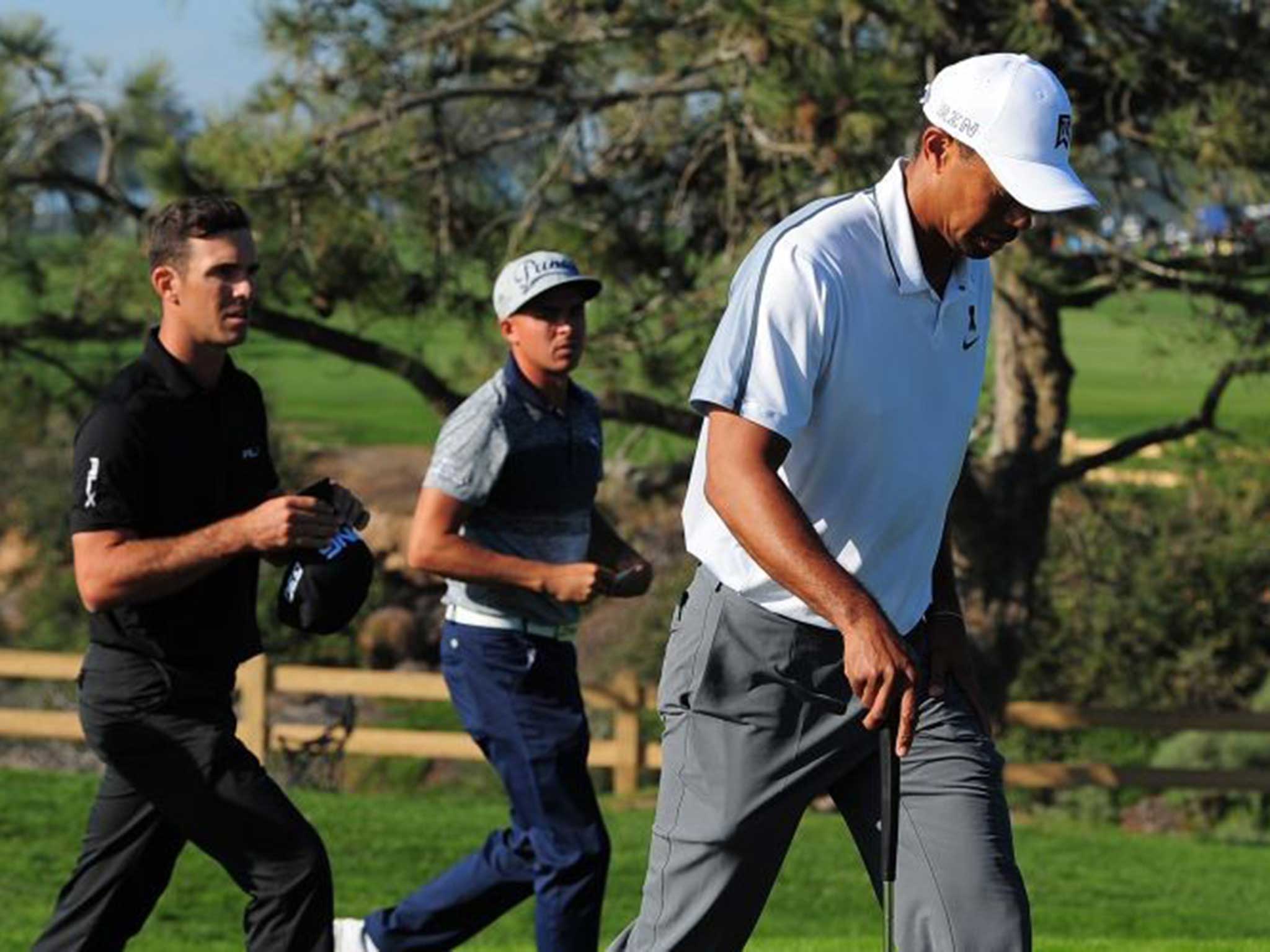Barack Obama may not recognise it but let's not forget Tiger Woods redefined golf
COMMENT: The 14-time Major winner deserves to be venerated just as much as Jack Nicklaus for his career achievements, yet he is not loved

It was a contrasting week for the twin pillars of American golf. Last Wednesday, Tiger Woods announced an indefinite break from the sport to exorcise the evils in his game.
Twenty four hours later, Jack Nicklaus received an invitation to Washington from the President of the United States. On 24 March, he is to receive the greatest tribute America can pay a civilian, the Congressional Gold Medal.
This does not necessarily confer victory on Nicklaus in the ceaseless debate about which of golf’s legendary figures is the greater god – after all, he was beaten to the Oval Office by Byron Nelson in 2006 and three years later by Arnold Palmer. But it does highlight the hellish decline in the fortunes of Woods since crashing his SUV into a fire hydrant on the night of Thanksgiving in November 2009.

The medal acknowledges individuals “who have performed an achievement that has an impact on American history and culture that is likely to be recognised as a major achievement in the recipient’s field long after the achievement”. While the construction of the sentence might offend English usage, there is no denying the profundity of the sentiment.
Nicklaus is loved in a way Woods is not. His charitable work and long-standing devotion to an institution America prizes above all, marriage, mean Nicklaus is far longer off the political tee than Woods can ever be. Woods did not only do damage to his game by his epic philandering, he holed below the waterline one of the most assiduously constructed public images in the history of sport.
It is easy to see, therefore, how Woods might not meet the same golden end beneath the Rotunda in Washington. This would be a pity. Woods is not the first married golfer to lose his moral compass when the libido is raging. Some of those held in the highest affection have been the greatest transgressors in the boudoir.
Remorse is the first step towards forgiveness and Woods has shown plenty of that, even if the scripted response in the white heat of revelation was misguided and out of step with the requirement. He has since demonstrated the necessary responsibility in the devotion to his children and also in the rebuilding of his private life with skier Lindsey Vonn.

The marital betrayals were made more repellent by the hypocrisy of the wholesome domesticity projected in the media and while they remain a stain on his character, they should not be allowed to blight his impact on the game.
Woods hails from a demographic alien to golf and therefore, it might be argued, his ascent is the most remarkable in the history of the sport. The remark he passed when recounting the collision with the cameraman in Cortina d’Ampezzo has even greater application on the fairways of American country clubs. “There’s not many brown dudes at ski races,” he observed.
That Woods’ reshaping of golf’s parameters has not led to a commensurate take-up of the game in areas where it has been traditionally ignored shines an uncomfortable light on stakeholders and the wider community. It was never the obligation of Woods to spread the love among the black community. It is the responsibility of the politicians and community leaders who represent us to address inequalities in provision and opportunity among the disadvantaged and victims of casual discrimination.
Woods did his bit as a kid each time he walked on the range or put a tee in the ground, the only black face in a world dominated by the white middle classes. Golf clubs do not ordinarily extend to the parts where the black folks live, though they might offer admission through the tradesman’s entrance in one form of employment or another.
Whatever the relative merits of Woods and Nicklaus as golfers, Jack did not once cross the clubhouse threshold feeling anything other than he belonged. Woods was made to feel the weight of his ethnicity by the absence of “brown dudes” sharing the canvas. He still is, though there has doubtless been a commensurate easing of discomfort as his power, wealth and prestige have grown.
While Woods would love nothing more than to eclipse Nicklaus’s record of 18 majors, if he doesn’t hit another ball he has enjoyed one of the great careers. His 14 majors were racked up at an unprecedented rate during a decade in which he redefined what it was to hit a golf ball, introducing an athletic dimension that hitherto had not existed.
He might be paying for that now with a body struggling to hold up in his 40th year but he is not done yet. Remember, Nicklaus was 46 when he chalked his 18th major. And if anyone can climb off the golfing deck, Woods can.
Join our commenting forum
Join thought-provoking conversations, follow other Independent readers and see their replies
Comments